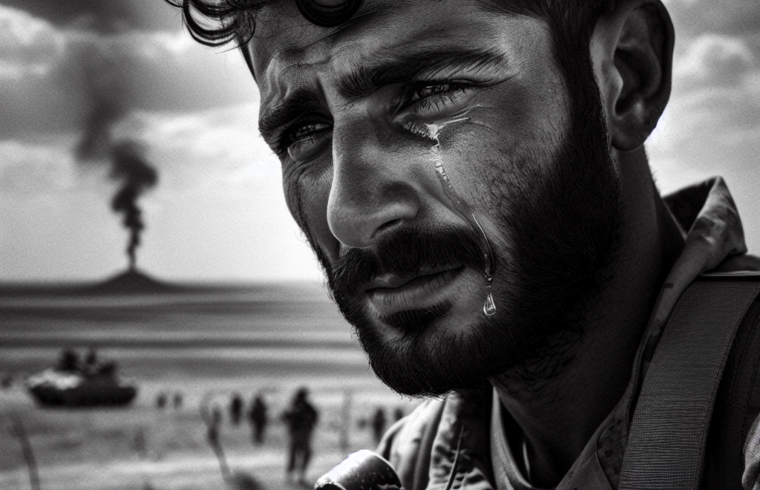==> Thank you for reading this post! Click Here If you are looking for support and Victory over PTSD.
Understanding Emotional Trauma
What is Emotional Trauma?
Emotional trauma refers to the impact of distressing events on an individual’s mental and emotional well-being. After experiencing the horrors of war, veterans often find themselves grappling with memories that can be haunting and debilitating. It’s like carrying an emotional backpack filled with heavy stones—each one representing a painful memory or experience.
In my own journey, I discovered that trauma can manifest in many forms. Some days, it’s like a shadow that follows me around, while other days, it feels like it consumes every ounce of joy in my life. Understanding what emotional trauma really is helps in acknowledging its presence and working through it.
Often, we think of trauma as something only combat veterans face, but it can affect anyone who’s had to confront intense situations—whether on the battlefield or not. The key is recognizing that these feelings are valid and deserve attention and care.
Recognizing Symptoms of Trauma
Physical Symptoms
Recognizing symptoms of trauma can be tricky, especially when they don’t follow the narrative we expect. Physical symptoms can range from fatigue to chronic pain, and frankly, it’s weird how much your body can hold onto stress. There are days when I felt like I was constantly running on empty—no energy, just drained.
When I first realized that physical symptoms were a sign of my emotional state, it was eye-opening. I remember going to the doctor for what I thought was just a routine check-up only to find out that the weight I was carrying emotionally was manifesting in my physical health. It’s a real wake-up call.
Understanding that my body was reacting to my emotional scars was crucial. It reminded me to pay closer attention to my overall health, linking my emotional well-being with physical care. It’s not just about feeling sad; it goes deeper, affecting every aspect of how I live my life.
The Importance of Seeking Help
Therapy and Counseling
Seeking help can be one of the toughest steps to take, trust me, I know. When I first went to therapy, I felt like I was admitting defeat. But instead, that was one of the bravest things I could do for myself. Therapy provides a safe space to untangle your thoughts and feelings, offering tools to manage daily life.
Finding the right therapist was a journey in itself. I remember sitting in different waiting rooms, feeling a mix of relief and a bit of dread. But when I met someone I clicked with, it opened up a whole new avenue for healing. The right professional can help you navigate those murky waters of emotional trauma.
Get Support and Help with Recovery! Visit us for more Information and Support
Whether it’s group therapy, one-on-one sessions, or workshops, the key is to keep seeking until you find what resonates with you. This process helped me feel less isolated and gave me a community that understood my struggle, which was invaluable.
Building a Support System
Finding Your Tribe
Building a support system is probably one of the most rewarding parts of recovery. I started reaching out to friends and family, sharing my story and letting them in on what I was dealing with. It was like shedding light on a dark room—suddenly, things became less scary.
Finding your “tribe” can mean connecting with other veterans, joining support groups, or online communities. Each interaction not only provides empathy but also valuable insights into coping strategies. I met some incredible folks who were all navigating similar paths, reaffirming that I wasn’t alone in this battle.
Support systems aren’t just about sharing woes; they are places to celebrate progress too! It’s amazing how uplifting it can be to share a small victory—like making it through a tough day—amidst understanding peers who genuinely cheer you on.
Developing Coping Strategies
Mindfulness and Self-Care
Now let’s talk coping strategies—these became my best friends! Mindfulness practices like meditation and deep-breathing exercises helped ground me in moments when anxiety threatened to spiral. I remember finding a five-minute breathing exercise that changed everything; it brought me back to the present when my mind tried to take me elsewhere.
Self-care isn’t just about pampering yourself; it’s also about doing the tough stuff, like saying no when you need to recharge and being okay with that. I had to learn to prioritize my well-being above all else, even when it felt selfish. Trust me, it’s not. It’s necessary!
Incorporating small habits into my daily routine has made a world of difference. Whether it’s journaling, connecting with nature, or simply allowing myself to enjoy a hobby without guilt, these practices became essential in my recovery. They’re like anchors I can return to whenever life feels chaotic.
FAQ
- What is emotional trauma?
- Emotional trauma is the lasting impact that distressing experiences can have on an individual’s emotional and mental well-being. It may manifest in various symptoms and affect daily life significantly.
- What are some physical symptoms of trauma?
- Physical symptoms can include fatigue, chronic pain, changes in appetite, and sleep disturbances. These symptoms often signify that emotional distress is manifesting in physical form.
- Why is seeking help important?
- Seeking help is crucial because it allows individuals to process their trauma in a safe environment, gain coping strategies, and connect with others who understand their experiences.
- How can I build a support system?
- You can build a support system by reaching out to friends, family, or joining groups where you can share your experiences. Finding peers who have gone through similar challenges can provide valuable understanding and support.
- What are effective coping strategies for dealing with trauma?
- Effective coping strategies include mindfulness practices, self-care activities, journaling, and adopting healthy routines that promote well-being. These habits can help ground you during difficult times.













